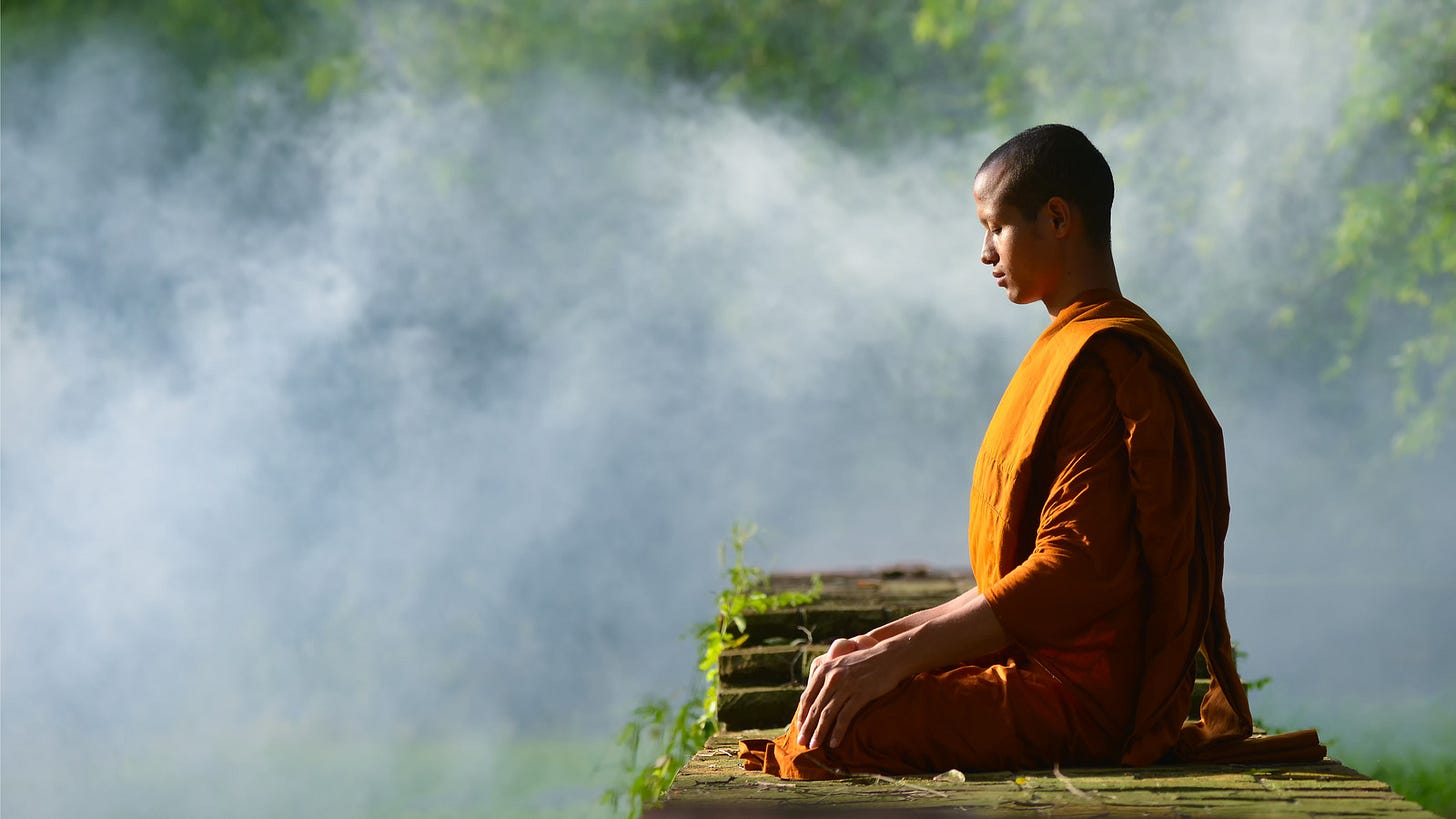It was fascinating to be home this Thanksgiving, in the midst of what you might call my exploration of Zen Buddhism.
Zen Buddhism teaches many life-changing practices, including mindfulness and presence.
My parents, who are of a different wisdom tradition, have views I do not share. But they taught me to think for myself and to be independent. Such a posture has empowered me to go on my own quests for the truth and I now find wisdom in all faiths under the sun.
This year, there were moments I found myself coming in and out of presence. I felt sadness at times when I thought about how my parents and I no longer shared the same views on life. At times, I felt this to be a source of separation between us. But buddhist monks like Thich Nhat Hanh taught that when one feels sadness or anger, one should try not to suppress those feelings or fight them, but carry them tenderly with lovingkindness and compassion. Hanh who was nominated for the Nobel prize by Dr. Martin Luther King Jr, taught that this practice gives these emotions space to be transmuted and transformed; it also helps us realize that we are not alone in our feelings and that these experiences connect us to every living human being on earth.
I entered into this practice at times during my Thanksgiving vacation. I can’t say it was very easy. There were moments of sadness that felt overwhelming. These turned out to be, fleeting, it’s true, but at the time they seemed like they would last forever. Still as I persisted through the practice, I felt clearer after and experienced greater moments of gratitude for my family, gratitude that really made Thanksgiving come alive for me. I was able to see my family as individuals on their own life journey, beautiful for their own sake, not for the utilitarian need to meet my expectations of who I wanted them to be.
I’ve been watching my ego and I’ve learned that it really wants to objectify, and by this I mean it wants to perceive everything and everyone as a solid, unchanging, fixed, static entity. This of course is a defensive mechanism, a way of being that evolved within me as a way to deal with the unknown and to deal with pain. But nothing is static. Life is change.
In any given day, I can experience a whole range of emotions rising and falling within me like waves in an ocean. The more I practice seeing in this way, the more my way of seeing will be in union with the cosmos. And as I continue to see in this way, the hope is that I’ll see every human being as they are, a unique, unrepeatable pattern made in the image of the Divine. Mark Epstein, a psychotherapist who integrates Buddhism with Freudian approaches to trauma, makes a distinction between clinging and desire that is apt for this point. In his book, ‘Open to Desire,’ he shows that while clinging is what my ego tends to do, desire can give way to a kind of grace.
He writes,
Although desire, of whatever shape or form, seeks completion, there is another kind of union than the one we imagine. In this union, achieved when the egocentric model of dualistic thinking is no longer dominant, we are not united with it, nor am I united with you, but we all just are. The movement from object to subject, as described in both Eastern meditation and modern psychotherapy, is training for this union, but its perception usually comes as a surprise, even when this shift is well under way. It is a kind of grace.
Another experience that has helped me practice seeing this grace is Netflix’s new series, Our Universe. If you haven't watched it, I highly recommend it. It is truly spellbinding. Narrated by Morgan Freeman, Our Universe is six episodes of pure wonder that show how so much natural phenomenon we take for granted -- like the seasons, time, and elements like iron — are all the products of the cosmos, birthed from stars near and far away. This zooming out shows how everything is connected, how we are literally star stuff, and how everything is in balance: there can be no darkness without light, no day without night, no lotus flower, without mud.
I try to remember this when I am feeling down or sad. As Hanh taught in an interview with Oprah, when seen through this light, even our suffering can be seen as a miracle, and as a dharma that gives us the opportunity to practice presence.
This Thanksgiving, I hope you had a wonderful time being with your loved ones and I hope this post inspires you to practice more mindfulness and presence.
And One More Thing
Speaking of mindfulness, hehe, be sure to check out Theory of Enchantment. I created ToE as an antiracism training that teaches us to look within and get in right relationship with ourselves so that we can nurture and be compassionate towards others. I am as much a student in this training as I am a teacher so I hope it moves you as much as it has moved me.
As always, don’t forget to subscribe!





i may have mentioned him to you, but have you read any Trungpa? he's a complex, and sometimes, disturbing figure. but then, life is conundrum. and in my view, his wisdom and knowledge of Buddhism from the experience of a real living breathing imperfect soul, is unmatched. i recommend: training the mind, the sacred path of the warrior, the myth of freedom, cutting through spiritual materialism, and great eastern sun.
What a beautiful read. I try to practice compassion and patience when observing and interacting with my loved ones, but sometimes I find it difficult. Especially when their road is very different than my own. Resonated deeply, thanks sis!